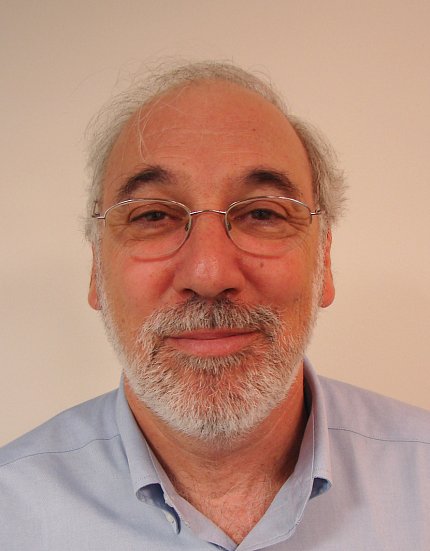CSR’s Freund Retires

Dr. Robert Freund recently retired as chief of the AIDS and related research (AARR) integrated review group. His career divides roughly in two—the first half in research and teaching at Harvard and the University of Maryland and the second half at the Center for Scientific Review.
“I’ve learned a lot everywhere I have worked,” he said. “At Harvard, Maryland, CSR, people have taught me so much.”
His inclination to learn extends to sharing his own knowledge and experience with others. “A lot of his impact is in his interactions,” said Dr. Valerie Durrant, director of the Division of AIDS, Behavioral and Population Sciences. “He never missed any opportunity to provide clarity and to answer questions about review.”
Freund grew up in New Jersey and attended Columbia University. After a stint as a laboratory assistant in New York, he earned his Ph.D. in biology at Harvard. “Grad school was where the real excitement came,” he recalled. “I worked with remarkable people. That’s where science transitioned into something really special for me.”
His postdoctoral research in the department of pathology at Harvard Medical School focused on polyoma tumor virus in mice, evolving into molecular work on the virus and oncogenesis.
In 1992, he became a faculty member in the department of microbiology and immunology at the University of Maryland School of Medicine.
Freund came to NIH in 2000, when he realized he was ready for a change from academia. He joined CSR as a scientific review officer (SRO) for one of the virology study sections.
In 2004, Freund created a still-heralded training program. It encompassed a course for new SROs, mentoring and workshops for more experienced staff. “A generation of SROs learned the trade from him,” said Durrant. “His influence on review is broader than the HIV/AIDS field because of how many SROs were shaped by the way he trained them into their positions.”
“His innovative training is a legacy,” agreed Dr. Alexander Politis, chief of the infectious diseases and microbiology IRG. “When I interview for new SROs, I am confident in saying we have excellent training, and a lot of that is because of him.”
Freund became AARR IRG chief in 2010. The position, besides managing the staff, involved outreach in the United States and globally. One highlight was working with Politis and others on the U.S.-South Africa Program for Collaborative Biomedical Research (now in phase 2) that included training South African researchers to prepare proposals for CSR-coordinated peer review.
His career culminated in reorganization of AARR study sections, for which he received the CSR Director’s Award in 2018.
“The reorganization brought our study sections and processes in line with current HIV/AIDS science, which was huge,” said Durrant. “He had developed relationships with the extramural community, program staff and people across NIH in the field. He tapped into those connections to get input on the science. It was his years of work in building relationships with the community that did that.”
In retirement, Freund’s first priority has been going through boxes of old papers, beginning with those from his parents as well as spanning his own career. Through that exercise, he has relived his route from New York to Massachusetts to Maryland. It reinforced that “everything that I did was fun and exciting,” he said.
